Fair Observer’s Editor-in-Chief, Atul Singh, argues that the triumph of lunacy over sanity will result in tears for Israelis, Palestinians and the wider region.
On 2 November 1917, Arthur Balfour wrote a letter to Baron Rothschild promising that His Majesty’s government favored the idea of establishing a national home for the Jewish people in Palestine. The consequences of what has since come to be known as the Balfour Declaration live with us today. Israel and Hamas have just clashed over Gaza. Israel’s closest allies, the US and the UK, have been upset by its plans to build 3,000 new homes for settlers in East Jerusalem and West Bank, a move that is illegal under international law. More importantly, representatives of 95% of the world’s population have just voted to accord “Palestine non-Member Observer State status in the United Nations,” a similar status to the Vatican. The UN support for Palestinian statehood is largely symbolic and will not change much on the ground in the short run. For now, the carnage will continue.
History’s Poisoned Chalice
Until General Allenby won the Third Battle of Gaza and went on to famously enter Jerusalem by foot on 11 December 1917, Palestine had been a part of the Ottoman Empire for the last four hundred years. In 1920, the League of Nations estimated the population of Palestine to be 700,000 with the Jewish element to be a mere 76,000. It went on to say that prior to 1850 there were only “a handful of Jews” in the country and immigration to the Holy Land was a direct result of the Russian pogroms in the late 19th century.
Prior to the pogroms, almost half of the world’s Jews lived in the Russian Empire, most forced into the Pale, the territory of present-day Poland, Latvia, Lithuania, Ukraine and Belarus. They lived what a Jewish poet called “an ugly life” that tasted like lukewarm soup, without salt or spice. Yet even this life was threatened and Jews immigrated en masse to foreign shores. In the years before 1914, the Jewish population of the US increased from 250,000 to 3 million. At the same time the number of Jews in the UK increased from 60,000 to 300,000.
The collapse of empires and the rise of nationalism in Europe unleashed a resurgence of the old dark hatred of the Jews. This in turn led to Zionism, the movement for a Jewish nation state. In 1897, Theodor Herzl, a Viennese journalist, held the world’s first Zionist congress and soon was involved in a scheme to buy some land in Uganda for a Jewish homeland. Chaim Weizmann, a British research chemist, disagreed with this scheme and rejected the British offer of a Jewish homeland in Africa. He assumed leadership of Zionism and insisted that a Jewish home in Palestine was essential. In a few years, he was able to generate immense momentum behind this project, initially considered as mad.
During World War I Britain ran desperately short of acetone, an essential ingredient of explosives. Weizmann had come up with a process for producing acetone on a large scale and made it available to the British for the duration of the war for no payment. Lloyd George, the then British Prime Minister, claimed that this “was the fount and origin of the famous declaration about the National Home for the Jews in Palestine.” More importantly, a Jewish state offered the promise of becoming what Weizmann termed “an Asiatic Belgium” and an important strategic asset for the British Empire. The declaration was geared towards winning Jewish support not only in the US but also in Russia. It was also a response to rumors that Germany was mulling a public declaration in favor of Zionism.
The Balfour Declaration did not immediately lead to a Zionist state. After the 1919 Versailles treaties, the British assumed control of Palestine and Jewish immigration to the country grew dramatically. Between 1936 and 1939, Arab Palestinians revolted against British colonial rule and mass Jewish immigration. The British crushed this revolt with the help of Jewish paramilitary organizations, the Haganah and Irgun. However, the revolt forced the British to issue the White Paper of 1939, which renounced Britain’s intent of creating a Jewish National Home in Palestine, as proclaimed in the 1917 Balfour Declaration. Britain started restricting the number of Jewish immigrants to Palestine to a total of 15,000 per year. Even immigrants fleeing Nazi persecution were placed in detention camps or deported to places such as Mauritius. After the war, the extent of Jewish persecution by the Nazis and the Holocaust came to light. European guilt and the sympathy of the rest of the world led to the adoption of Resolution 181 (II) by the United Nations General Assembly that partitioned Palestine to create the state of Israel. All Palestinian Arab leaders rejected the resolution and all independent Arab and Muslim states voted against it. In 1948, as soon as the British left, the neighboring Arab states invaded to snuff out the nascent Jewish state. Israel managed to survive and even thrive. Victory in 1967 gave it complete control over Palestine and the conflict continues till today.
Parallel Narratives: Holocaust and Nakba
At heart, the conflict between Israel and Palestine is one between two competing narratives. The Israelis believe that they have lived for centuries as a persecuted minority and they need a Jewish state as a refuge from discrimination, oppression or another Holocaust. Europe was terrible to its Jewish population and the Arab nations turned upon the Jewish nation on the very day it was born. In their view, the world is a dangerous place where no non-Jewish state can be trusted to treat its Jewish population honorably.
The Palestinians commemorate the day Israel came into being as the day of Nakba, which in Arabic means catastrophe or disaster. An estimated 700,000 Palestinians were expelled or fled their homes to become refugees in Gaza, the West Bank, Jordan, Lebanon and Syria. They see Israel as a country that was established in 1948 by dominant colonial powers that gave the immigrant Jewish minority more land than the natives who formed the majority. For Palestinians, Israel was established after robbing them of their ancestral lands, which they had inhabited continuously for several centuries. Each side sees the other as representing an existential threat.
A Battle for Justice and Security
Israelis believe that they live in a hostile neighborhood where all their neighbors are plotting their destruction. Even though they have been the dominant power in the region since 1967, they are still worried about their security. They believe that their withdrawals from Lebanon and Gaza in 2000 and 2005 only emboldened their enemies. Their justification for the Israel-West Bank Barrier is to protect civilians from Palestinian suicide attacks. Their intervention in Gaza is to quell the firepower of Hamas, an organization that they see as a terrorist group which does not recognize Israel’s existence and fires rockets at civilians.
Palestinians believe that they are being denied their birthright, an independent state of their own. They see Israel as unwilling to treat them with dignity or make peace. They feel that they have been reduced to second class citizens in their own land and that Israel will never be satisfied with any concession they make. Palestinians see the so-called barrier as an “Apartheid Wall” that the International Court of Justice has opined to be “contrary to international law.” They see it as a thinly disguised effort to grab more land, break-up communities and render impossible even a moth-eaten Palestinian state. The continuous building of illegal Israeli settlements in East Jerusalem and the West Bank confirms their suspicions. They feel that the US puts the onus of good behavior on them, that Israel’s war crimes such as the use of white phosphorus in densely populated urban areas during the Gaza War of 2008-09 go unpunished, and that Israel has no intention to treat Palestinians fairly or to make peace.
The Rise of the Right
The heady days of the 1993 Oslo Accords are behind us. The iconic handshake between Yitzhak Rabin and Yasser Arafat on 13 September 1993 turned out to be a false dawn. The Palestinians do indeed self-govern some cities in the West Bank, as well as the blockaded Gaza Strip. However, this falls far short of their expectations. Fatah, Arafat’s party, has lost credibility and is seen as corrupt and inept. In the 2006 parliamentary election, Hamas secured a famous victory and now runs Gaza as its fiefdom. Even more extreme actors such as Palestinian Islamic Jihad are growing in strength and, according to the Israeli Defense Forces, “more than 12,800 rockets and mortars, an average of 3 attacks every single day, have landed in Israel” since 2001.
When the Soviet Union collapsed, it unleashed yet another wave of Jewish immigration to Israel. Soviet Jews took advantage of the Law of Return that grants every Jew the automatic right to immigrate to Israel and become a citizen of the state. From 1989 to the end of 2003, more than 950,000 of them had made Israel their home. With their scientific training and entrepreneurial zeal they transformed Israel into a startup society on steroids. Their seamier legacy was the fanaticism of the new immigrant and a Soviet style ease with brutality when it came to dealing with Palestinians.
These immigrants support Avigdor Lieberman, the founder and leader of the Yisrael Beiteinu party and Israel’s current foreign minister. Unsurprisingly, Lieberman openly admires Putin and has a taste for brutality. He was convicted of assaulting a twelve-year old by the Jerusalem District Court, has called for the bombing of Egypt’s Aswan Dam and suggested that Arab members of Knesset, the Israeli parliament, who meet Hamas are “terror collaborators” who ought to be executed. Israel’s proportional representation system makes smaller parties incredibly powerful and Yisrael Beiteinu is the third largest party in Knesset. Lieberman, with his reputation for racism and brutality, is foreign minister. Binyamin Netanyahu, the hard-line pro-settlement leader of the right wing Likud party, is prime minister. It is little surprise therefore that Israel is developing a reputation for disproportionate use of force, as Palestinian casualties far outstrip Israeli ones by many orders of magnitude.
The Triumph of Lunacy over Sanity
Neither the Palestinians nor the Israelis are acting with wisdom or pursuing their long term interests. Hamas rockets are pinpricks that do not harm Israel, which is a world leader in military technology and has the support of the US. They only feed its insecurity and provoke brutal retaliation that leads to massive casualties in Gaza. Yet, Hamas and other extreme groups persist in responding violently. Fatah has abjured violence but is now entrenched in corruption. It is now seen as a collaborator with its 50,000 security personnel on a payroll funded by the Israelis. It has neither the imagination nor the stomach to lead a new kind of movement. This means that even though Fatah is deemed to represent Palestinians, it is Hamas that Palestinians are increasingly rallying behind. People want justice and Hamas’ violence against Israel seems justifiable to many in Gaza and even the West Bank because the other side is being far more violent. It is an Old Testament eye for an eye approach that only strengthens the likes of Lieberman and has clearly failed. Palestinians would be better off marching en masse to Israeli fences and inviting mass arrest or even slaughter. Gandhi’s methods involving non-violent civil disobedience are not only morally preferable but also more practical. Palestinians are simply too weak to fight but they keep throwing punches instead of turning the other cheek and shaming their oppressors.
Israel has now lost legitimacy. The only major countries that supported Israel in the UN General Assembly were the US and Canada. Both countries did so, in part, because they have significant Jewish populations that are affluent, educated and devoted to Israel. The American Israel Public Affairs Committee (AIPAC) that calls itself “America’s pro-Israel lobby” has a stranglehold on policymakers in the US. Even if Congressmen and Senators sympathize with Palestinians, their knee-jerk reaction is to offer absolute support to Israel and turn a blind eye to characters such as Lieberman for fear of incurring AIPAC’s wrath. Yet, even in the US there is a new generation of Jews that is no longer comfortable with Israel. Support for JStreet, a pro-peace lobby group, is increasing.
Israel’s belligerence and indifference to world opinion is increasing its isolation. The decision to go ahead with building 3,000 new housing settlements despite the opposition of even the US is shortsighted and foolish. It is little surprise that Israel is losing the support of even as guilt ridden an ally as Germany. If Israel continues to act the way it does, even US support will wane. Oil production in the US is booming and it could well emerge as the world’s largest producer and even net exporter in the years to come. Israel’s strategic relevance as a loyal Middle East ally will diminish. Furthermore, many Americans do not take kindly to Israel’s attempts to influence their electoral politics. Netanyahu’s insouciance towards the US infuriates many and a former senior CIA official went so far as to say that the tail ought not to wag the dog. With greater assimilation of the Jewish population and the rise of a new JStreet generation, it is not hard to see that Israel is overplaying its hand. States based around ethnicity are passé and an increasingly multicultural US is bound to become morally uncomfortable with its unqualified support for Israel.
There are two important developments that Israel is not being able to understand. First, gone are the days when Israel could do a backroom deal with authoritarian leaders such as Egypt’s Anwar El-Sadat or Jordan’s King Hussein. Arab leaders have to heed their electorates. Egypt’s new president belongs to the Muslim Brotherhood of which Hamas is an offshoot. Palestinians form a majority of the population in Jordan. Other Arab populations have long standing sympathy for Palestinians and Israel’s actions only increase the already simmering resentment towards the country. Second, approximately 20% of Israel’s population is now Palestinian and will only grow further in the coming years. In a Jewish state, Palestinians are clearly second class citizens even if they have more rights in Israel than in Lebanon, Jordan or Syria. They are bound to rebel one day.
Just as it is in Palestinian interests to abjure violence and adopt Gandhian methods, it is in Israeli interests to abandon what the rest of the world increasingly sees as a form of apartheid and make peace before it is too late.
Image: Copyright © Shutterstock. All Rights Reserved
The views expressed in this article are the author's own and do not necessarily reflect Fair Observer’s editorial policy.
Support Fair Observer
We rely on your support for our independence, diversity and quality.
For more than 10 years, Fair Observer has been free, fair and independent. No billionaire owns us, no advertisers control us. We are a reader-supported nonprofit. Unlike many other publications, we keep our content free for readers regardless of where they live or whether they can afford to pay. We have no paywalls and no ads.
In the post-truth era of fake news, echo chambers and filter bubbles, we publish a plurality of perspectives from around the world. Anyone can publish with us, but everyone goes through a rigorous editorial process. So, you get fact-checked, well-reasoned content instead of noise.
We publish 2,500+ voices from 90+ countries. We also conduct education and training programs
on subjects ranging from digital media and journalism to writing and critical thinking. This
doesn’t come cheap. Servers, editors, trainers and web developers cost
money.
Please consider supporting us on a regular basis as a recurring donor or a
sustaining member.
Will you support FO’s journalism?
We rely on your support for our independence, diversity and quality.



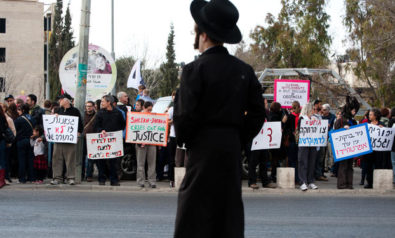

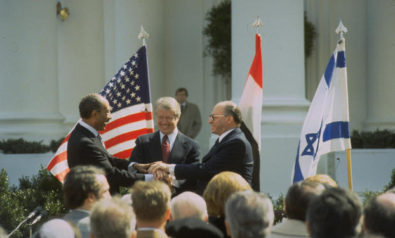


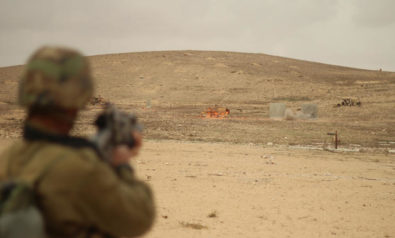
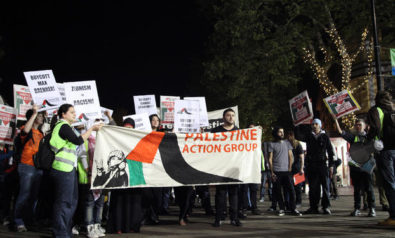
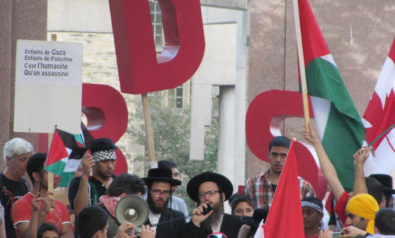

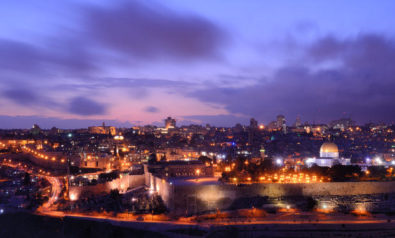



Comment